

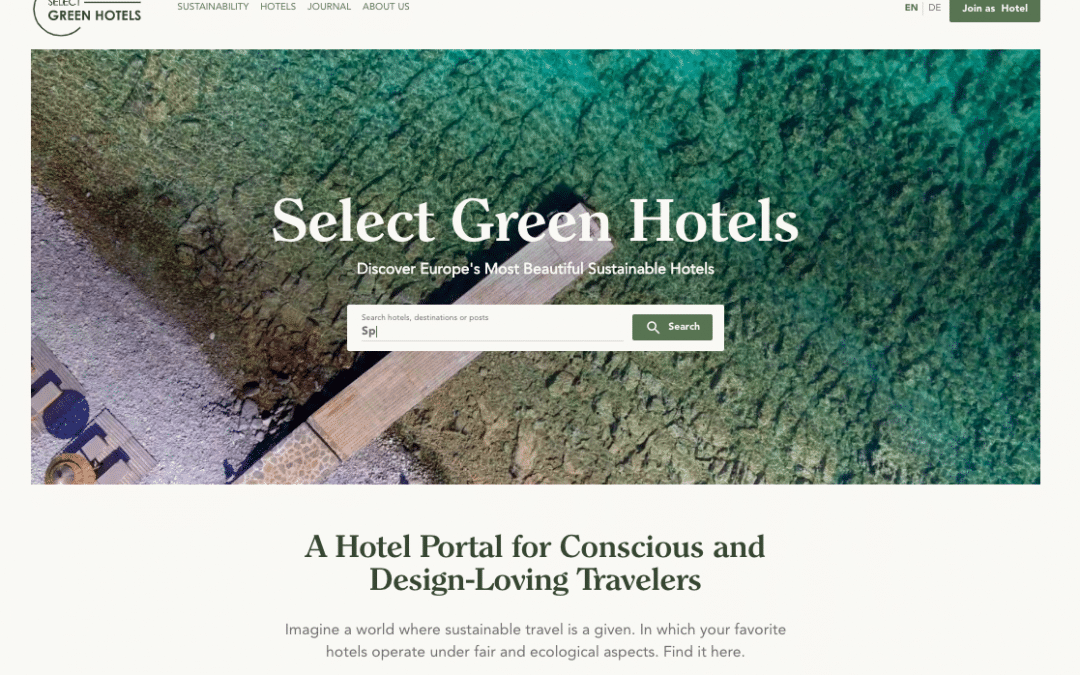
Q&A with Select Green Hotels
Q&A with Select Green Hotels
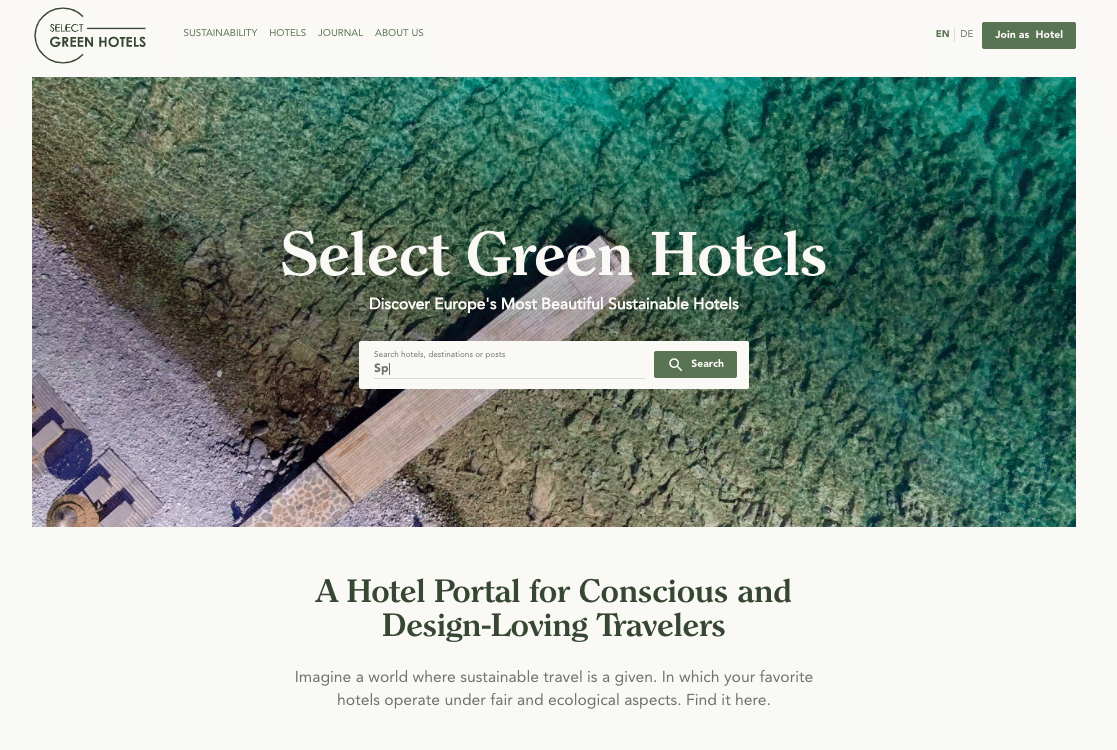
Growfish.co met with Isabelle, the owner of the wonderful new eco-travel business Select Green Hotels – a booking platform that specialises in luxury eco-resorts. Here she inspires us with the stories behind setting up her businesses and tips on the best hotels to look out for in 2022.
For more information on how sustainability can positively impact your business. Get in touch with a member of the team at growfish.co
Related Posts
Sustainable Marketing: Beyond Buzzwords
Q&A with Select Green Hotels
Growfish.co met with Isabelle, the owner of the wonderful new eco-travel business Select Green Hotels - a booking platform that specialises in luxury eco-resorts. Here she inspires us with the stories behind setting up her businesses and tips on the best hotels to...
Q&A with Sustainable Narrative
Growfish.co has recently partnered with Sustainable Narrative - a digital and design platform that provides green solutions to businesses in Dubai, UAE. We caught up with the amazing founder of Sustainable Narrative, Najia Qazi to talk about design theory and the...
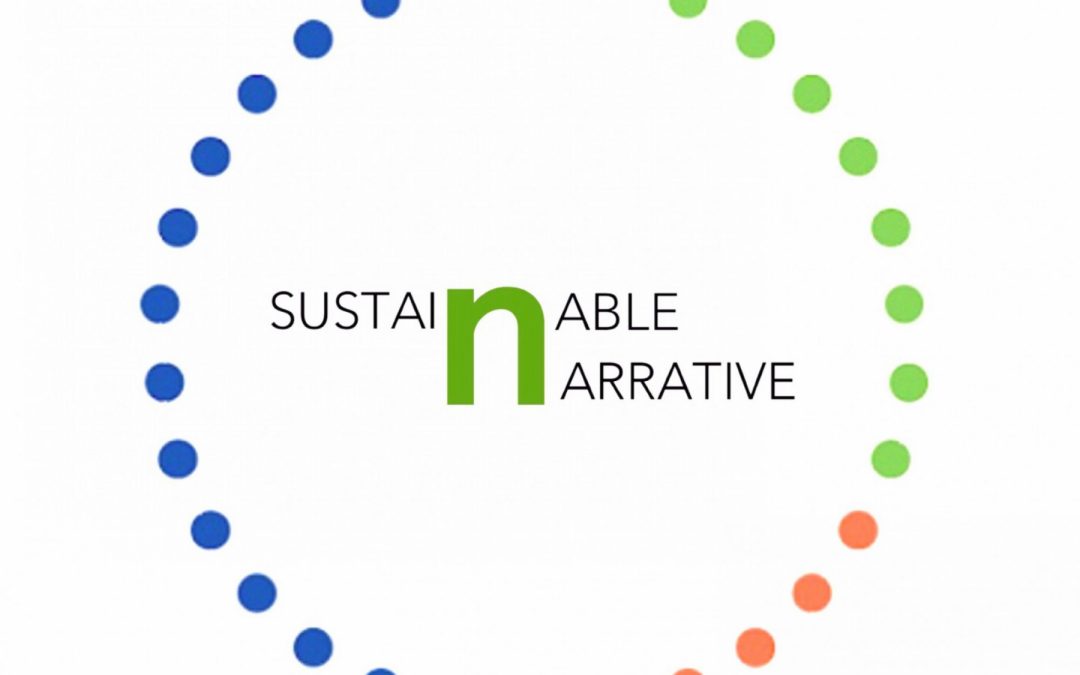
Q&A with Sustainable Narrative
Q&A with Sustainable Narrative
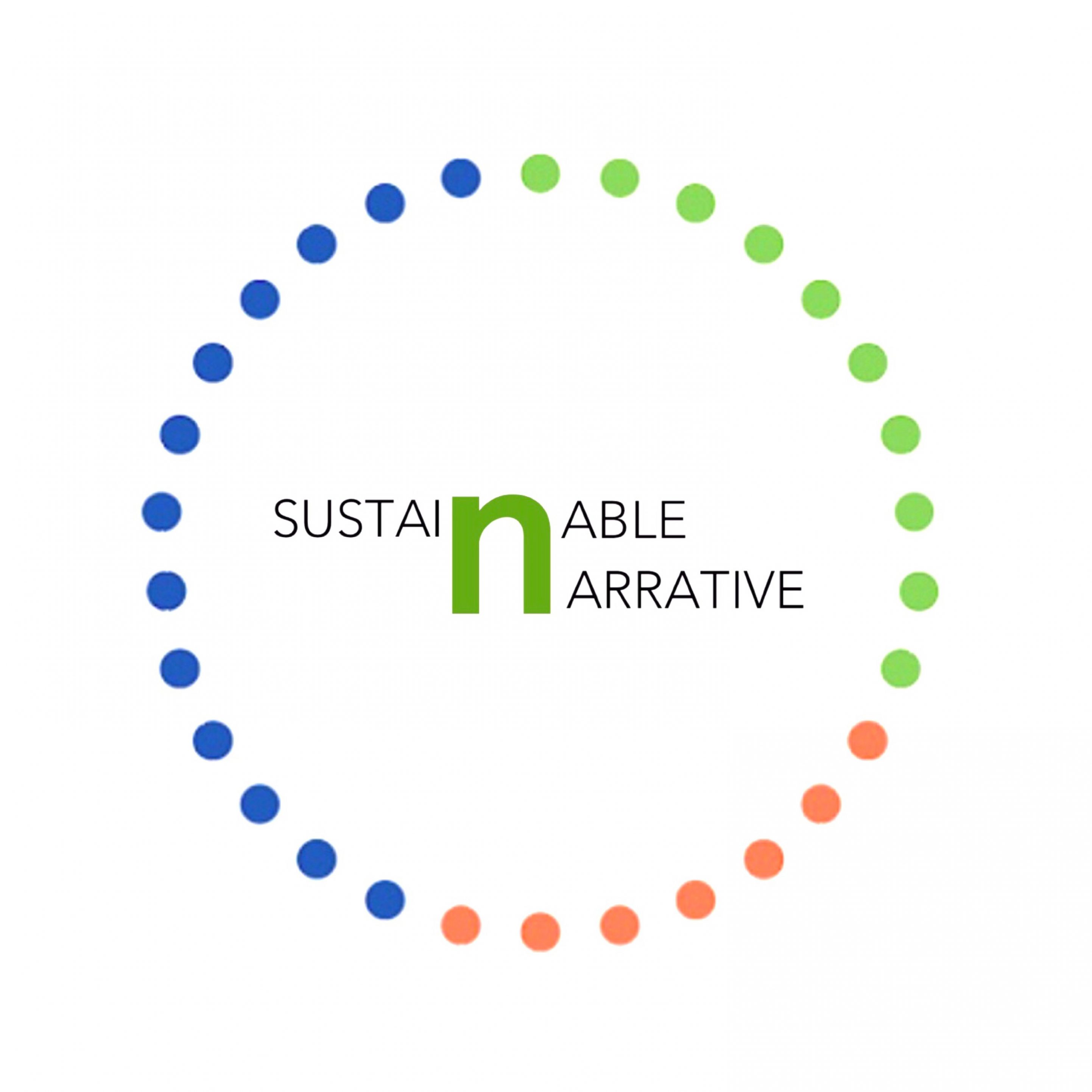
Growfish.co has recently partnered with Sustainable Narrative – a digital and design platform that provides green solutions to businesses in Dubai, UAE. We caught up with the amazing founder of Sustainable Narrative, Najia Qazi to talk about design theory and the future of eco businesses.
Sustainable Narrative is a community organization – can you tell us more about what that entails?
At Sustainable Narrative, our aim has always been to create awareness by providing sustainable design-based solutions to various incubators, design hubs & think tanks in Dubai, UAE. We are trying to incorporate the regenerative business mindset that includes the process of restoration, renewal of the current resources and creating sustainable systems that integrate the needs of society with the integrity of nature. The premise has always been the circular design theory. This concept recognizes the importance of the economy needing to work effectively and efficiently at all scales – for large and small businesses, for organizations and individuals, globally and locally. Transitioning to a circular economy does not only amount to adjustments aimed at reducing the negative impacts of the linear economy. Rather, it represents a systemic shift that builds long-term resilience, generates business and economic opportunities, and provides environmental and societal benefits.
When you launched Sustainable Narrative, who was it primarily set up to help?
Sustainable Narrative was set up in 2018 to help businesses, organizations, and communities to create a sustainable future. There was a gap in the UAE market wherein the concept of sustainability was practically missing. We gradually began to question how the entire design system worked in the current fashion industry and decided to find and provide green solutions for glaring issues such as the unfair pay gap, high rate of production leading to overconsumption, and excessive wastage of resources etc. Our founder, Najia Qazi, and the team started to think of fresh ways to tackle the issues at hand with constant brainstorming sessions on key topics within fashion and design. This eventually led to chalking out effective plans for a sustainable industry.
Our aim has always been to promote the concept of sustainability, not just as a popular or current trend; but rather as a lifestyle worth embracing, which is most needed in the walks of design or fashion.
Do you think sustainable brands sometimes struggle to ‘sell’ themselves and communicate who they really are?
Firstly, we need to understand that it’s nearly impossible for a brand to be 100% sustainable. Businesses need to incorporate the 3Ps rule that is people, profit, and planet to achieve ethical and sustainable goals in the competitive market.
For effective collaboration and communication, sustainable brands need to take a step forward to incorporate a radical transformation in their business mindset and structure that is by working together with the current industry by showing commitment and innovation. Also, we need to evolve from just reducing our impact to making a positive impact, but this can only happen if we all work together through effective collaborations and teamwork and continuous research and exploration into the realms of sustainability.
However, the primary focus for business is to start thinking of fresh ways to tackle the issue of transparency and to communicate, educate and invest in the circular design theory approach by embracing Sustainable alternatives within the design industry.
What is the greatest challenge you have overcome at Sustainable Narrative?
At Sustainable Narrative, we usually reach out to like-minded individuals and companies who are also keen on making an impact in sustainable development, particularly in fashion and design.
We believe that a new mindset for business, especially in UAE itself, is a challenge – convincing organizations to incorporate the circular design thinking approach that can further help their businesses to explore new ways to create sustainable, resilient, long-lasting value. We hope to bring together a business community and its sustainability-driven goals and initiatives under one umbrella, not only in the UAE but also in other parts of the world.
But the good news is that UAE is slowly and gradually working towards being more eco-friendly by 2050 and has started to invest in clean technologies and sustainable development. As we continue exploring financing green investments, seeking alternative energy sources, and lowering carbon emissions as solutions, the writing is irrevocably on the wall for anyone with a conscience – the time to act is NOW.
Can you give us your top tips for making a business more sustainable from the inside?
The changes that need to happen are already underway; we have seen considerable growth in awareness of the issues and possibilities (new brands, technologies, and marketplaces) for sustainable fashion and design. And it would be great to see local or regional companies innovating on their business models, so they do not depend on people buying new things constantly to operate. That would enable us to shift away from fast fashion towards slow style, valuing quality over quantity, closing the loop or circular process. We really appreciate the creative ways that designers are closing the loop to ensure that a garment’s end of life cycle lasts beyond its first owner. One solution is designing from waste. Whether that’s designing with deadstock (fabrics and materials that are new but haven’t been used) recycled or pre-loved clothing and materials, many brands are looking at ways to design with the resources that we already have.
The emphasis is often on businesses: how can they produce and promote greener products? However, the transition to a more responsible future must also involve both consumers and governments. It is becoming increasingly critical that governments promote environmental reform through regulation and policy. But an important question remains: to become truly sustainable, how must consumers’ lifestyles and consumption habits change?
Lastly, do you think the future of eco businesses is bright?
We’re starting to experience an exciting time of change, especially in times of COVID, because there’s a fantastic sustainable movement happening across brands which are inspiring to see. We are seeing a growing demand for sustainable products as several local start-ups are now stepping into the game, with alternatives and trendier substitutes to existing choices, motivated by a desire to truly improve the environment for future generations. We have found that with the primary being the creation of a sustainable future, competition is replaced by harmony and collaboration. With the vision and mission are so aligned, the conscious community avoids the traditionally harsh competitive behaviour and relies on team building and communal efforts.
Sustainability is about protecting our future and being committed to change. Because we all need to play our part in helping and ensuring fashion is ethical and sustainable is an important part. We need to reinvent ourselves and co-create with nature and ethics to survive in the long run.
For more information on how sustainability can positively impact your business. Get in touch with a member of the team at growfish.co
Related Posts
Sustainable Marketing: Beyond Buzzwords
Q&A with Select Green Hotels
Growfish.co met with Isabelle, the owner of the wonderful new eco-travel business Select Green Hotels - a booking platform that specialises in luxury eco-resorts. Here she inspires us with the stories behind setting up her businesses and tips on the best hotels to...
Q&A with Sustainable Narrative
Growfish.co has recently partnered with Sustainable Narrative - a digital and design platform that provides green solutions to businesses in Dubai, UAE. We caught up with the amazing founder of Sustainable Narrative, Najia Qazi to talk about design theory and the...

How to Avoid Greenwashing
How to Avoid Greenwashing
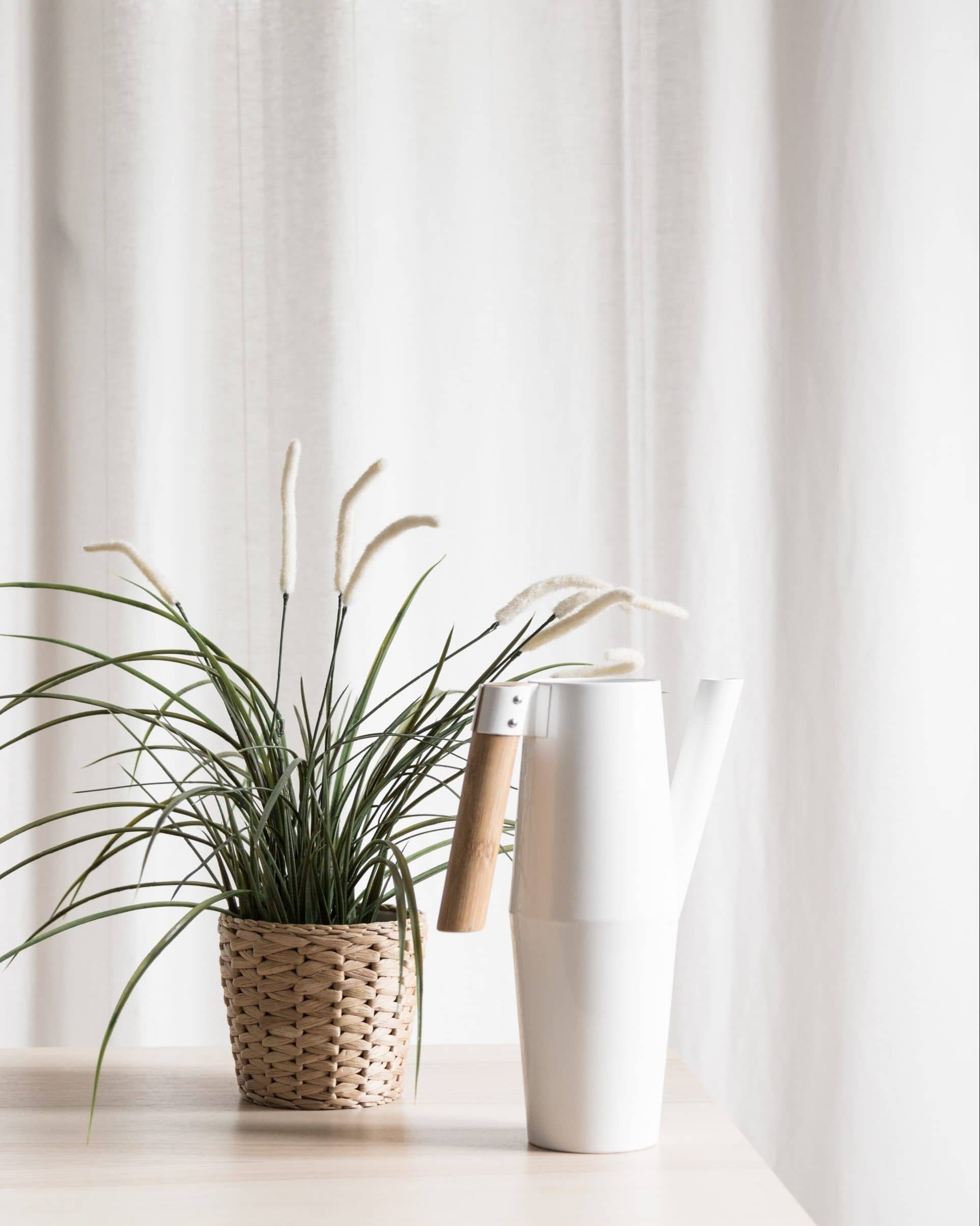
We’ve put together some easy yet impactful ways on “How to Avoid Greenwashing and Spot it?” within your own business. Let’s dive in!
What is Greenwashing?
Greenwashing is the concept of labelling a product or a service as green, through duplicitous PR and marketing efforts, rather than doing the groundwork to actually make the product or service itself more sustainable.
Eco-minded consumers should be able to trust a company to deliver on what they promise, however, this is not always the case. Words like sustainable and eco-friendly have been so exploited by corporations who appear to have no real interest in preserving the planet, that there is now a phrase coined for this phenomenon: Greenwashing.
Is Greenwashing New?
Even though greenwashing is a buzzword of the modern era, the term itself was coined in the 1980s, around the time of Chevron, the multinational oil company that commissioned a series of ads to convince the public of its environmental credentials, which of course were widely criticised (1).
The Guardian states that the phenomenon of greenwashing actually dates back to as early as 1969. When the Westinghouse’s nuclear power division, while under duress from the ever-popular anti-nuclear movement, launched TV and print ads extolling the virtues, cleanliness and safety of nuclear power plants. Only 17 years later these virtues were proven disastrously untrue.
The Volkswagen Scandal
The most infamous and serious example of corporate greenwashing was the Volkswagen Clean Diesel scandal of 2015, which is an exceptional case of greenwashing gone wrong. Not only did Volkswagen’s campaign fabricate their new climate-friendly approach to greener automobile technology, their endeavours actually resulted to be more harmful to the environment than their conventional cars.
The VW situation not only had worldwide consequences with breaching environmental laws but also resulted in major financial losses for the company (2). In the aftermath of the scandal, VW made headlines for the most memorable greenwashing violations of the decade, instinctively making it hard for consumers to forget this environmental faux-pax.
The court of consumer opinion is tough for companies recovering from scandals as such. One study concluded that consumers who were knowingly confronted with misleading advertising reacted negatively to the presented brand at hand (3).
When businesses hide behind a facade of advertising, performance stats, claims and trademarks it can be for a variety of reasons, such as luring in more climate-conscious customers to duping evolving environmental laws and standards. Greenwashing can be seen on a smaller scale, with instances of companies launching allegedly eco-friendly products among their non-environmentally friendly merchandise or stretching the truth about sustainable manufacturing.
Is This Product Actually Doing What It Says?
Going green is valued, strived for, and worked on. Sustainability is a value that customers and consumers seek and brands strive to deliver. Today’s generation, who are more educated on and engaged with the climate crisis than ever before, in theory, should be able to trust brands and companies who label themselves eco-friendly at face value.
Unfortunately, as with any type of marketing, discernment is key. For individuals who are conscious of making small changes in their everyday life, greenwashing presents a problem. Consumers have to ask themselves the question ‘Is this product actually doing what it says?’ This lack of trust can erode the relationship between consumer and product.
The Importance of Brand Transparency
Being a brand that has an established reputation for being truthful and transparent about its sustainability efforts is crucial for businesses to future-proof themselves. Investing time in a conscious, meaningful marketing strategy from the get-go will attract the right customers.
An analysis of greenwashing revealed that misleading schemes can exist in many different methods and are implemented in various stages and depths of marketing or business strategy, with corporate social responsibility being held in accountability.
Whether it’s an honest editorial about sustainability values on a companies website, going the extra mile to approve products by legitimate eco-labels, documenting best practices and sharing this knowledge, or trusting your marketing to an agency that specializes in a sustainable approach, rowing against the tide of greenwashing has come down to one easy solution: transparency.
We all have the power to be agents of change.
- The troubling evolution of corporate greenwashing
https://www.theguardian.com/sustainablebusiness/2016/aug/20/greenwashing-environmentalism-lies-companies - Volkswagen: The scandal explained
https://www.bbc.com/news/business-34324772 - Different Shades of Greenwashing: Consumers’ Reactions to Environmental Lies, Half-Lies, and Organizations Taking Credit for Following Legal Obligations
https://journals.sagepub.com/doi/full/10.1177/1050651919874105
For more information on how sustainability can positively impact your business. Get in touch with a member of the team at growfish.co
Related Posts
Sustainable Marketing: Beyond Buzzwords
Q&A with Select Green Hotels
Growfish.co met with Isabelle, the owner of the wonderful new eco-travel business Select Green Hotels - a booking platform that specialises in luxury eco-resorts. Here she inspires us with the stories behind setting up her businesses and tips on the best hotels to...
Q&A with Sustainable Narrative
Growfish.co has recently partnered with Sustainable Narrative - a digital and design platform that provides green solutions to businesses in Dubai, UAE. We caught up with the amazing founder of Sustainable Narrative, Najia Qazi to talk about design theory and the...
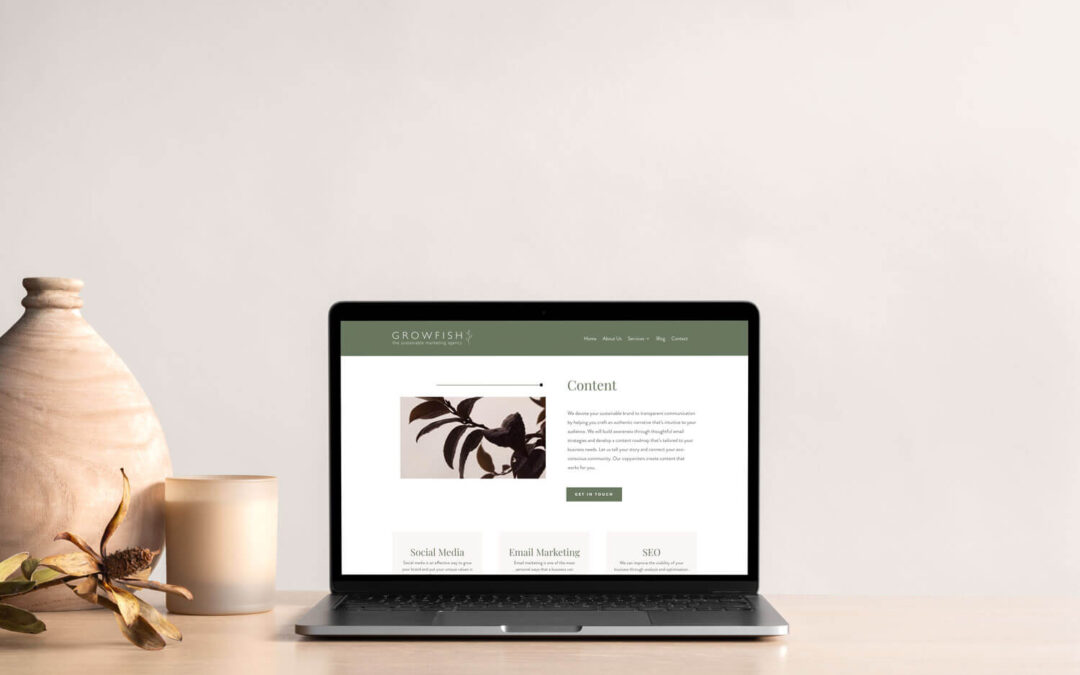
Interview: Nicole from Peach Moon Design
Interview: Nicole from Peach Moon Design

Welcome Nicole! Tell me a little about yourself.
Thank you Polly – I’m a Graphic & Web Designer on a mission to connect and collaborate with passionate and positive people who want to make a difference in this mad and wonderful world!
Australian made and well travelled, I have lived in many places, including London where I lived for over a decade and worked in some of London’s leading design agencies. I eventually left to start my own screen printing business but my desire for a deeper connection with nature and my passion for travel inspired me to ditch the silkscreens in favour of the laptop screen. So I set up my design business in 2017 and have since visited many places in South East Asia, learning all about Eastern philosophy, yoga, meditation, spirituality and growing an evermore deeper connection with nature.
In particular the moon and how we can work with these powerful energies to manifest our goals in our daily lives, both in work and in play. I am now in pursuit of intuitively helping and guiding creatives, entrepreneurs and small biz owners to visualise their authentic truth through their brand and online.
What inspired you to start peachmoondesign?
I sat with myself and asked what my values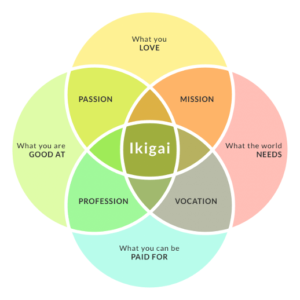 were and what lit me up. The ones that stood out for me were creativity, connection and kindness. So I asked how can I find my ‘Ikigai’? A Japanese word meaning ‘A reason for being: the thing that you live for: the reason which you wake up in the morning’.
were and what lit me up. The ones that stood out for me were creativity, connection and kindness. So I asked how can I find my ‘Ikigai’? A Japanese word meaning ‘A reason for being: the thing that you live for: the reason which you wake up in the morning’.
Cut to the creation of Peach Moon Design & Branding, where I have been able to connect with some lovely like-minded souls in helping to bring their visions to life and to shine their unique light out into the world, which really brings me so much joy!
What does intuitive branding mean to you, and why does it matter?
It’s basically an extension of me and my gift of intuition, paired with creativity and the ability to bring people’s visions to life in an interesting way. It’s important because working in this way can only bring out the uniqueness of the individual and in turn the brand.
We’ve all been affected by the changes of 2020. How do you see this affecting your line of work?
I do think more than ever people are needing to find their voice in the digital world and some are branching out on their own as the world embraces working from home. Something I am a huge advocate for! Because of this more people are wanting a bespoke website for their products or services. I’ve noticed a big increase in clients looking for holistic, sustainability-driven branding and design, it’s an exciting time.
Do you have any tips for up and coming web designers?
Believe in yourself and you can achieve anything.
For more information on how sustainability can positively impact your business. Get in touch with a member of the team at growfish.co
Related Posts
Sustainable Marketing: Beyond Buzzwords
Q&A with Select Green Hotels
Growfish.co met with Isabelle, the owner of the wonderful new eco-travel business Select Green Hotels - a booking platform that specialises in luxury eco-resorts. Here she inspires us with the stories behind setting up her businesses and tips on the best hotels to...
Q&A with Sustainable Narrative
Growfish.co has recently partnered with Sustainable Narrative - a digital and design platform that provides green solutions to businesses in Dubai, UAE. We caught up with the amazing founder of Sustainable Narrative, Najia Qazi to talk about design theory and the...

How To Be a Conscious Consumer
How To Be a Conscious Consumer

Want to know how conscious consumers will affect your sustainable business? This blog explains the global shift in consumer values.
Do you check if your beauty products are cruelty-free? Make a beeline for brands with non-plastic recyclable packaging? Do you shop in your local store and take your own bags?
“Every time you spend money, you are casting a vote for the kind of world you want to live in.” Anne Lappe.
Conscious consumerism, or ethical consumerism, is a term that represents an awareness of how our consumption impacts society as a whole. Consumers are now making conscious choices to ensure that the brands they support are aligned with their ethics and values. We see buying practices increasingly driven by a commitment to purchases that have a positive social, economic and environmental impact.
Narrative Shift
Although the term has been around for a while, we can see the narrative on conscious consumerism shifting. In 2019, topics such as sustainable fashion and the use of plastic were high on the agenda but tended to be related more to recycled and recyclable materials. In 2020 however, somewhat propelled by the ongoing Covid pandemic, there was a huge increase in awareness of more deeply rooted issues. Worker’s rights, for example, were brought to the fore through supply chain scandals, including the social media led #PayUp campaign, highlighting the often perilous positions that many garment makers are subjected to.
The Black Lives Matter movement also exposed contradictions between the external messaging and internal culture of many big brands. But it’s not just about what we wear. Conscious consumerism extends to the food we buy, how goods are packaged, the way we travel and even where we live. It also spans the spectrum of sustainability.
Consumers are increasingly demanding to know whether their purchase has negatively impacted the environment and whether the company treats its employees fairly, right through to whether the organisation is adhering to its tax obligations. Although it is still relatively difficult to trace the entire lifespan of a product, particularly those which are mass-produced, it is increasingly becoming a priority for businesses.
As Forbes reports:
“Trust, sustainability, authenticity and transparency are now the values embedded in the social contract between consumers and retailers. This new ethic requires fundamental changes in how retailers and consumer packaged goods brands build affinity and maintain or gain market share.”
Generational
Awareness of the importance of these ethical issues is increasing and answers are being sought by a wide range of individuals. Whereas just a few years ago, the trend tended to indicate that conscious consumerism was being led by millennials, a 2020 study on consumers by IBM Institute for Business Value revealed that it now spans all generations.
Furthermore, although there may be differences in the priorities that each generation is looking for in their purchases, clean, sustainable and environmentally responsible products rank the highest in importance.
Research by IBM found that a third of all global consumers state that they are prepared to switch from their usual brand and to pay a higher price if the brand’s ethics do not align with their personal values. Although the respondents to the IBM study were largely from established markets, a recent article by the World Economic Forum showed that conscious consumerism is perhaps even more prevalent in emerging economies.
It stated that people in those regions tend to opt for products that are produced fairly, with minimum impact on the environment, even if that means paying more. Globally, however, it is clear that the pressure is mounting. As consumers become more aware and their choices become more informed, a global effort is required to respond in a way that shifts from CSR to embedding sustainable practices into the core business.
Brands
We are seeing major shifts in certain brands. For example, the notoriously fast fashion brand H&M recently vowed to use 100 percent recycled or sustainable materials by 2030.
There are also innovative solutions being launched, such as the Farmer Connect App which helps consumers track the entire footprint of their coffee. And it is not just retail that needs to be prepared. As consumers become more conscious of the environmental and social impact of their chosen goods and services, financial investments are set to come into focus.
As a call to action, Philipp Rickenbacher CEO of Julius Baer & Co Bank writes
“I firmly believe it is the role of the financial services industry to give their clients the means to invest in sustainability if they choose to do so. Rather than a moral stance, responsible investment is a rational and deliberate decision to allocate capital where it promises superior long-term risk-adjusted returns – not just with the benefit of hindsight, but with forward-looking intelligence.
B Corp
The growing demands from conscious consumers in all sectors are reflected in the increase in movements such as the B Corp, a global community of companies committed to balancing purpose with profit, which currently has over 3700 signatories spanning 150 industries. The B Team is another corporate-led initiative which recognises the public pressure to shift to a more sustainable, responsible way of operating, vowing to redefine corporate leadership.
Amidst the pandemic, 2020 has been a year of action for many and we can all play a part in what comes next. The rise in both corporate and consumer-led movements presents an opportunity to cement a more permanent shift in culture.
As Slow Factory founder and creative director, Celine Semaan observes
“The pandemic has shown] the necessity of embarking on a sustainable journey because we have no other choice. And the way culture changes is important because policy follows culture.”
Sources
05-Oct-20
MP demands removal of Boohoo chief over supply chain scandal
https://www.ft.com/content/c72e5d25-48a2-471c-888d-e238626067cd
13-Jun-20
Woke’ fashion brands face backlash for not practising what they preach
https://www.theguardian.com/fashion/2020/jun/13/fashion-brands-culture-george-floyd
11-Jan-20
How Retailers Can Thrive In The Era Of The “Conscious Consumer”
https://www.forbes.com/sites/ibm/2020/01/11/how-retailers-can-thrive-in-the-era-of-the-conscious-consumer/
2020
Meet the 2020 consumers driving change
https://www.ibm.com/downloads/cas/EXK4XKX8
13-Jan-20
Forget retail therapy – this is the age of the conscious consumer
https://www.weforum.org/agenda/2020/01/conscious-consumption-not-retail-therapy/
23-Apr-20
TRANSPARENCY INDEX RANKS H&M GROUP AMONG THE TOP FIVE
https://about.hm.com/news/general-news-2018/hm-group-top-five-transparency-index-2018.html
03-Feb-21
n/a
https://www.farmerconnect.com/
03-Feb-21
n/a
https://bcorporation.net/
03-Feb-21
n/a
https://bteam.org/
28-Dec-20
Could the Covid pandemic make fashion more sustainable
https://www.theguardian.com/world/2020/dec/28/could-the-covid-pandemic-make-fashion-more-sustainable
The time to listen to consumers and join this global shift is now.
If you would like to learn more about conscious consumerism and how these shifts in mindset could affect your business goals, please get in touch with a member of our team, we would love to hear from you.
Related Posts
Sustainable Marketing: Beyond Buzzwords
Q&A with Select Green Hotels
Growfish.co met with Isabelle, the owner of the wonderful new eco-travel business Select Green Hotels - a booking platform that specialises in luxury eco-resorts. Here she inspires us with the stories behind setting up her businesses and tips on the best hotels to...
Q&A with Sustainable Narrative
Growfish.co has recently partnered with Sustainable Narrative - a digital and design platform that provides green solutions to businesses in Dubai, UAE. We caught up with the amazing founder of Sustainable Narrative, Najia Qazi to talk about design theory and the...



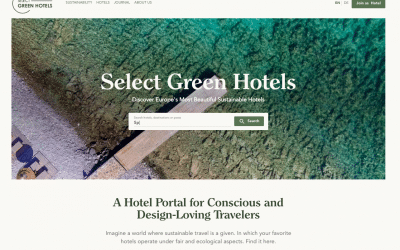
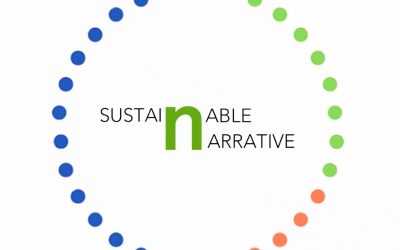

Recent Comments